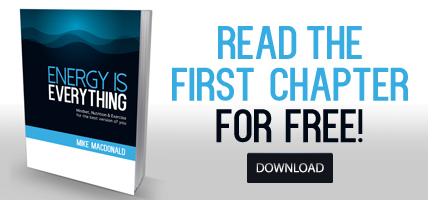Living the life you want – however you define it for yourself – starts in the mind.
While it’s true that some people are given a better start in life than others, it’s also true that people frequently succeed despite the toughest, most difficult circumstances.
The difference is how we think. Some mindsets breed success; others stifle it. Some mindsets promote happiness; others extinguish it. Some mindsets help us become the best version of ourselves; others leave us bitter, empty and full of regret.
Here are 6 of the biggest villains I’ve experienced when it comes to how we think.
1. The Victim
Poor me. When we delve into victimhood, it’s everybody’s fault but our own. We fight for our excuses. We recite our story so much that inevitably it becomes our truth. It taints how we see the world: you’re either lucky or you’re not. …And everyone else seems to have all the luck. It’s a sad and hopeless place to be.
Alter ego: Responsibility
“Show me someone who is humble enough to accept and take responsibility for his or her circumstances and courageous enough to take whatever initiative is necessary to creatively work his or her way through or around these challenges, and I’ll show you the supreme power of choice.” (Stephen Covey, 7 Habits)
2. The Fixed-Mindset
The fixed mindset speaks in absolutes. When it comes to virtues, traits and abilities, we either have it …or we don’t. There’s no scope for improvement and little point in trying. “I’m not a patient person.” “I can’t cook.” “I tried that once and was rubbish at it.”
Alter ego: The Growth-Mindset
Practice is king. And with it, we can improve at anything. Including how we think.
“Just because some people can do something with little or no training, it doesn’t mean that others can’t do it (and sometimes do it even better) with training.” (Carol Dweck, Mindset)
3. Entitlement
With the entitlement mentality, we’re focussed on what we can get. …And we always believe we deserve more than we’re currently getting. More money, more praise, more respect. “You don’t pay me enough to work more!” We feel under-appreciated and have a sense of lack. We seek the quick fix.
Alter ego: Service
With a service mentality, we ask, “What can I give?” “What work can I do?” When we give first, the rewards come. We work first. We expend effort first.
“You can’t hope to make progress in areas where you have made no application.” (Epictetus, Discourses)
4. ‘If-then’ Thinking
I’ll be happy when…
“It is human nature to always want just a little More. People spend their lives honestly believing that they have almost enough of whatever they want. Just a little More will put them over the top; then they will be contented forever.” (Timothy Miller, How To Want What You Have)
Alter ego: Gratitude
With gratitude, we appreciate the things we already have. No one has so little that they have nothing to appreciate. We can be happy in an instant when we appreciate the little things. Like sight. Movement. Shelter. Food. Running water. Music. Colour. A pulse.
5. The approval-seeker
We diminish ourselves. We hold ourselves back. We worry. “What will they think of me?” “What if I make a fool of myself?” When we sacrifice a life trying to please others, we get to the end with regret.
“And who exactly are these people you want to be admired by? Aren’t they the same people you are in the habit of calling crazy? And this is your life ambition, then – to win the approval of lunatics?” (Epictetus, Discourses)
Alter ego: Self-acceptance
Know thyself. Be thyself. Love thyself. If we act in a decent way, we need not be ashamed of who we are. Practice self-acceptance. Practice courage.
6. All or nothing
All or nothing thinking is the nemesis of consistent progress. And it frequently hijacks our health & fitness results. Everything’s great. Or it’s a disaster. We can eat any and all the food we want. Or we’re on an extreme diet. We’re in the gym every day of the week. Or we’re on our backsides ordering pizza.
Alter ego: Moderation
Let go of the need for perfection. Let go of extremes. Consistency is what matters. Basics practiced over and over again is what leads to greatness.
BIG IDEA: We get stuck in patterns of thinking that hold us from our best life.
TAKEAWAY: We can change our thoughts in an instant. And with practice,
- Responsibility
- The growth-mindset
- Service
- Gratitude
- Self-acceptance
- and Moderation
will transform our life.
ACTION STEP: Pay attention. This week, pay special attention to how you think and speak to yourself. See if you can notice any of these mindset villains amongst your thoughts.
Always Keep Reaching!






